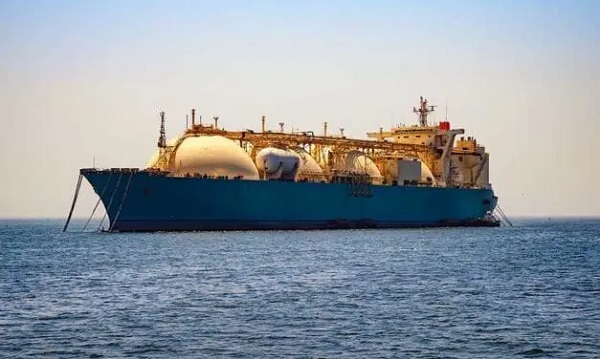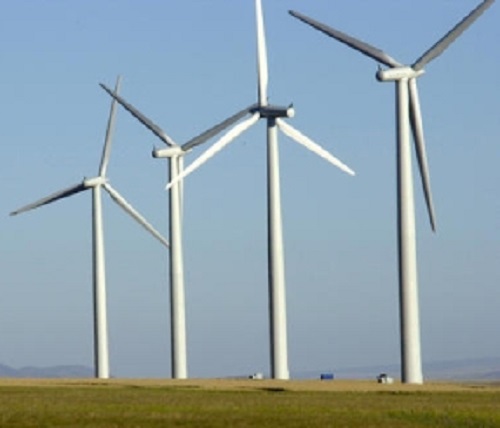Alberta
Didsbury RCMP catch thieves red handed on oil field lease site

March 25, 2021
Didsbury RCMP catch thieves red handed on oil field lease site
Mountain View County, Alta – Didsbury RCMP were dispatched to a theft in progress at a lease site approximately 5 kilometers west of Didsbury. Property representatives viewed the suspects on a live video feed and alerted police. Police immediately attended and arrested two suspects.
Mac Ronald Smith (38) of Clearwater County, Alta. was arrested and has been charged with:
- Break, enter and theft
- Theft of copper wire over $5000
- Possession of break in instruments
- Possession of a controlled substance – methamphetamine
- Fail to comply with release conditions et al
April Dawn Sanford (36) of Rocky Mountain House, Alta. was arrested and has been charged with:
- Break, enter and theft
- Theft of copper wire over $5000
- Possession of break in instruments
- Possession of a controlled substance – methamphetamine
- Fail to comply with release conditions
- Fail to comply with probation order (x2)
April Sanford was released by police and is scheduled to appear in Didsbury Provincial Court on April 26, 2021. After a judicial hearing, Mac Smith was released and is scheduled to appear in Didsbury Provincial Court on April 26, 2021.
“Oil companies have been installing sophisticated security systems which was instrumental in the apprehension of these suspects,” said Staff Sergeant Chad Fournier, Didsbury RCMP.
Alberta
Ottawa’s destructive federal energy policies and Premier Danielle Smith’s three part solution

Premier Danielle Smith has released a must-watch video laying out how Ottawa’s anti-energy policies have weakened Canada’s economy with higher unemployment, lost investment, and growing deficits. She explained that by scrapping the production cap, repealing the tanker ban, and getting rid of the No More Pipelines law, Canada could unleash its resources, create hundreds of thousands of jobs, and open new markets around the world. Premier Smith made clear that Alberta is ready to lead, now Ottawa needs the courage to act
Canada has become economically weak and vulnerable to the whims of our largest export market…and Ottawa continues to dither.
Parliament could do 3 things today that would immediately turn our economy around, create hundreds of thousands of jobs and generate trillions in wealth for Canadians without spending a single tax dollar:
1️⃣ Scrap Oil and Gas Production Cap
2️⃣ Overhaul “No New Pipelines” Law
3️⃣ Eliminate Tanker Ban
The national economic self-sabotage has to stop. Canadians deserve leaders in Ottawa with the courage to unleash our full potential, restore prosperity, and make our country strong again. We can do this!
Alberta
Is Alberta getting ripped off by Ottawa? The numbers say yes

This article supplied by Troy Media.
Alberta has the leverage and the responsibility to push for serious reform of Canada’s equalization system
Albertans are projected to send $252.5 billion more to Ottawa than they get back over the next 15 years —a staggering imbalance that underscores the
urgent need to overhaul federal-provincial fiscal arrangements.
That figure represents Alberta’s net fiscal contribution—the difference between what Alberta sends to Ottawa in taxes and what they get back in
return. Alberta, like all provincial governments, does not directly contribute to federal revenues.
These projections are based on fiscal estimates I’ve prepared using the same framework as Statistics Canada’s annual fiscal reports. Between 2025 and 2039, federal revenues raised in Alberta are expected to total nearly $1.42 trillion, while spending in the province will reach only $1.17 trillion. That leaves a gap of $252.5 billion.
This gap isn’t static. On an annual basis, Alberta’s contribution is projected to grow significantly over time. It’s forecast to rise from $12.7 billion in 2025, or $2,538 per person, to nearly $20.6 billion, or $3,459 per person, by 2039.
This isn’t new. Alberta has long been a major net contributor to Confederation. Between 2007 and 2023, Albertans paid $267.4 billion more to
Ottawa than they received in return, according to Statistics Canada. The only exception came in 2020 and 2021, years heavily impacted by COVID-19.
Albertans face the same federal tax rates as other Canadians but pay far more per person due to higher average incomes and a strong corporate tax base. This higher contribution translates into billions collected annually by Ottawa.
In 2025, the federal government is projected to collect $68.8 billion from Alberta, about $13,743 per person. By 2039, that will grow to $127.2 billion, or $21,380 per person. More than half will come from personal income taxes.
Meanwhile, federal spending in Alberta lags behind. In 2025, it’s expected to be $56.1 billion, or $11,205 per person—rising to $106.6 billion, or $17,831 per person, by 2039.
This includes transfers to individuals—about $17.5 billion in 2025, and $28.8 billion in 2039—and federal transfers to the provincial government, which are projected to grow from $12.9 billion to $20.9 billion. These include the Canada Health Transfer and the Canada Social Transfer, which help fund health care, education and social services.
Alberta does not receive equalization payments, which are meant to help less wealthy provinces provide comparable public services. Equalization is funded through general federal revenues, including taxes paid by Albertans. That imbalance is more than a budget line—it speaks to a deeper fairness issue at the heart of federal-provincial relations. Alberta pays more, gets less and continues to shoulder a disproportionate share of the federal burden.
That’s why Alberta must take the lead in pushing for reform. The Alberta Next Panel process—a provincial initiative to gather public input and expert advice on Alberta’s role in Confederation—gives the government an opportunity to consult with Albertans and bring forward proposals to fix the tangled mess of federal transfer programs.
These proposals should be advanced by Premier Danielle Smith’s government in discussions with Ottawa and other provinces. Alberta’s fiscal strength demands a stronger voice at the national table.
Some may argue for separation, but that’s not a viable path. The better solution is to demand fairness—starting with a more rigorous, transparent process for renewing major federal transfer programs.
Right now, Ottawa often renews key programs, like equalization, without proper consultation. That’s unacceptable. Provinces like Alberta deserve a seat at the table when billions of dollars are at stake.
If Alberta is expected to keep footing the bill, it must be treated as a full partner —not just a source of cash. Fixing the imbalance isn’t just about Alberta. A more open, co-operative approach to fiscal policy will strengthen national unity and ensure all provinces are treated fairly within Confederation.
Lennie Kaplan is a former senior manager in the Fiscal and Economic Policy Division of Alberta’s Ministry of Treasury Board and Finance. During his tenure, he focused, among other duties, on developing meaningful options to reform federal-provincial fiscal arrangements.
Troy Media empowers Canadian community news outlets by providing independent, insightful analysis and commentary. Our mission is to support local media in helping Canadians stay informed and engaged by delivering reliable content that strengthens community connections and deepens understanding across the country.
-

 Censorship Industrial Complex16 hours ago
Censorship Industrial Complex16 hours agoFreedom of speech under threat on university campuses in Canada
-

 Alberta11 hours ago
Alberta11 hours agoOttawa’s destructive federal energy policies and Premier Danielle Smith’s three part solution
-

 Business16 hours ago
Business16 hours agoCarney engaging in Orwellian doublethink with federal budget rhetoric
-

 Energy16 hours ago
Energy16 hours agoCanada’s LNG breakthrough must be just the beginning
-

 Alberta12 hours ago
Alberta12 hours agoIs Alberta getting ripped off by Ottawa? The numbers say yes
-

 Business17 hours ago
Business17 hours agoCourt’s ‘Aboriginal title’ ruling further damages B.C.’s investment climate
-

 Business5 hours ago
Business5 hours agoManitoba Must Act Now To Develop Its Northern Ports
-

 Agriculture10 hours ago
Agriculture10 hours agoIn the USA, Food Trumps Green Energy, Wind And Solar




